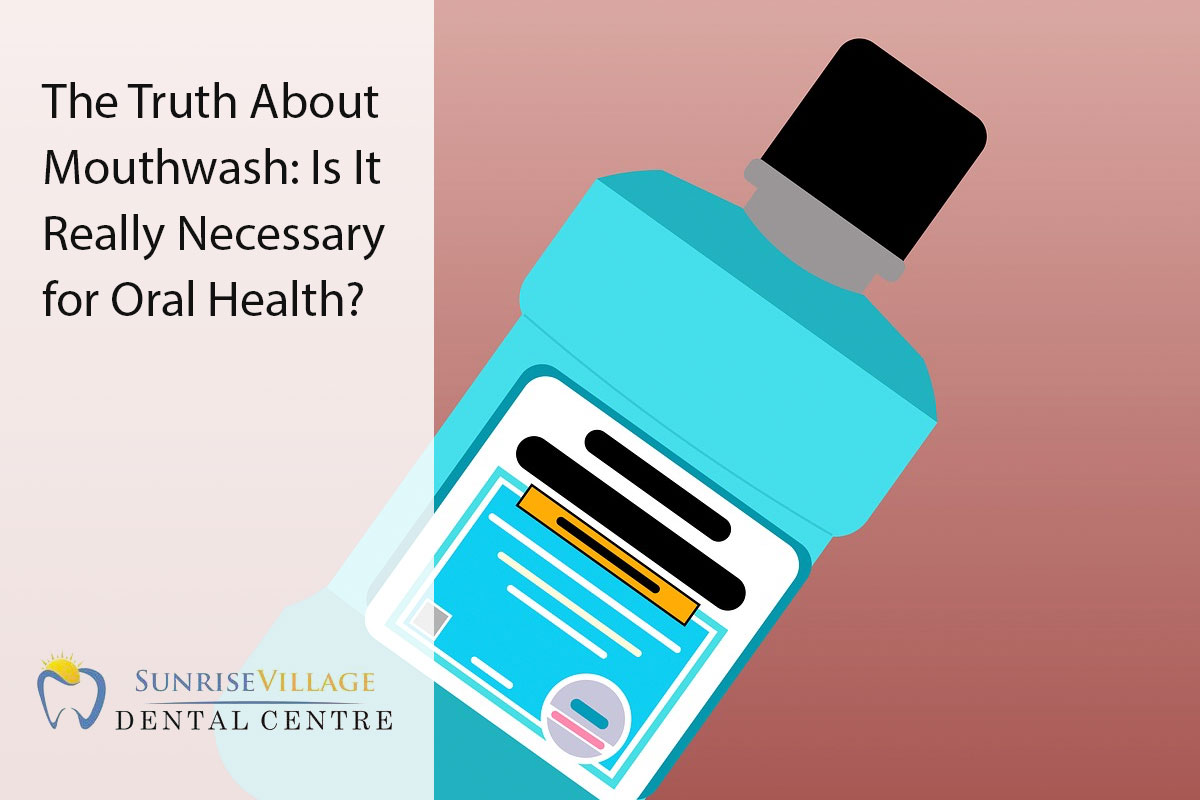
Is mouthwash essential for oral health, or is it merely a marketing ploy? This ongoing debate between dental professionals and consumers raises questions about its actual effectiveness and importance. In this article, we will explore the facts about mouthwash, arming you with the knowledge to make an informed decision about its role in your oral hygiene routine.
The Role of Mouthwash in Oral Health
Mouthwash is a liquid rinse used after brushing and flossing to eliminate mouth bacteria, improve breath freshness, and complement oral hygiene routines. While not a replacement for brushing and flossing, it serves a vital role in reducing bacteria that cause bad breath, cavities, and gum disease, enhancing oral health. Moreover, it provides a quick and convenient breath freshening option after meals or smoking, contributing to a more appealing mouth feel throughout the day. By decreasing plaque and tartar, mouthwash also aids in preventing cavities and gum disease, making it easier to maintain healthy teeth and gums.
Common Misconceptions About Mouthwash
Despite its various benefits, there exist some common misconceptions about mouthwash that might deter individuals from incorporating it into their oral care regimen. Let’s clarify these misconceptions:
- Mouthwash is a replacement for brushing and flossing: Mouthwash complements your oral care but doesn’t replace essential brushing and flossing. These practices are crucial for removing plaque and food particles, which mouthwash cannot replace.
- All mouthwashes are the same: Mouthwashes come in various types, each with distinct ingredients and purposes. Select one tailored to your specific needs, whether it’s freshening breath, cavity prevention, or gum disease treatment.
- Mouthwash is harsh and damaging to teeth: Most mouthwashes are formulated to be gentle and safe for daily use, not harsh or harmful to teeth and gums.
- Mouthwash is solely for individuals with bad breath: While mouthwash certainly freshens breath, it also plays a role in cavity prevention, gum disease management, and overall oral health. It benefits everyone, not just those with bad breath.
Types of Mouthwash
A range of mouthwash options caters to specific purposes, each incorporating unique ingredients. Here’s an overview of common categories:
- Therapeutic mouthwash: Designed for preventing and treating oral health issues like cavities and gum disease, containing active components like fluoride and antibacterial agents for improved oral health.
- Cosmetic mouthwash: Primarily focused on refreshing breath and enhancing mouth taste, without active ingredients for addressing oral health concerns.
- Natural mouthwash: Formulated with natural elements such as tea tree oil and aloe vera, promoting oral health without harsh chemicals.
- Prescription mouthwash: Typically prescribed by dental or oral health professionals, targeting specific oral health problems like severe gum disease.
How to Use Mouthwash Effectively
To ensure you get the most from your mouthwash, proper usage is essential. Here are some tips for effective mouthwash use:
- Begin with brushing and flossing: Remember that mouthwash doesn’t replace the need for brushing and flossing. Always clean your teeth and gums using these methods before using mouthwash.
- Measure the right amount: Most mouthwashes include a measuring cup or cap to help you use the proper amount. Follow the bottle’s instructions to ensure accurate dosing.
- Swish for the recommended duration: Many mouthwashes recommend swishing for 30 seconds to 1 minute. Be sure to adhere to this suggested time frame to allow the mouthwash to work effectively.
- Spit, don’t swallow: After swishing, spit the mouthwash into the sink. Do not swallow it, as it may contain potentially harmful ingredients.
- Avoid rinsing with water: Resist the urge to rinse your mouth with water immediately after spitting out the mouthwash, as this could wash away its beneficial components.
Conclusion
Mouthwash is a beneficial addition to your oral care routine, offering advantages such as breath freshening, cavity prevention, and gum disease control. It’s vital to select a mouthwash tailored to your needs and use it properly. While it doesn’t replace brushing and flossing, mouthwash plays a useful role in promoting oral health. Including it in your routine can minimize oral health risks and leave your mouth feeling clean and fresh. Call Sunrise Village Dental at (604) 253-2433 to book an appointment.

